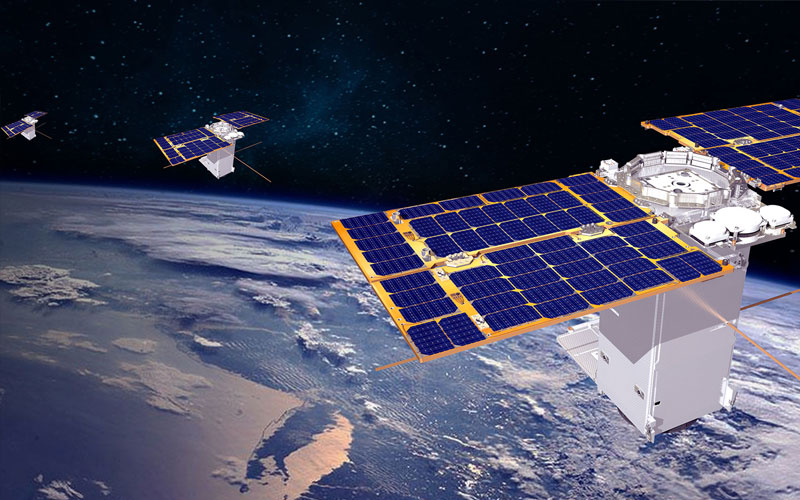
The Greek Ministry of Digital Governance has announced that the country is going ahead with the development of a €60-million Earth observation microsatellite constellation. Once operational, the constellation will provide the country with optical, multispectral, and hyperspectral Earth observation data.
An initial call for information for what was then referred to as the National Programme for the Construction of Small Satellites was published in September 2021. The programme was announced as an element of the country’s national space strategy, with funding coming from Greece 2.0, which is the country’s national recovery and resilience plan. The call was developed in collaboration with the European Commission and the European Space Agency, with the agency also handling the publishing and management of the call.
In January 2023, OHB Hellas, Thales Hellas, and SITAEL Hellas were all selected for the study phase of the project’s development. The aim of this initial phase was to optimize the proposed solutions and define the final specifications of the project that would be used to begin the main phase of its development.
On 24 January 2024, the Ministry of Digital Governance announced that this initial phase had been completed and that the project was ready to begin accepting proposals. According to this announcement, the constellation will have a total budget of €60 million. This project is, however, only one element of the country’s larger Microsatellite Programme, which has a total budget of €130 million.
Once operational, the data collected by the constellation of satellites will be utilized by a number of the country’s agencies, including the Ministries of Environment and Energy, Shipping, and Climate Crisis and Civil Protection. A particular focus of its operation will be monitoring the environment and the effects of climate change.
In addition to its direct use, a secondary aim of the project is to develop and foster a domestic small satellite market capable of developing new disruptive space technology.
A day before the official announcement from Greece’s Ministry of Digital Governance, ESA published the project’s call for proposals. In addition to the constellation of satellites, the call included a request for ground segment infrastructure offered as a service for a period of at least five years.
While the call is open to international proposals, preference will be given to prime contractors established in Greece. Additionally, interested consortiums will need to budget at least 30 percent of the overall contract value for operations in Greece.







